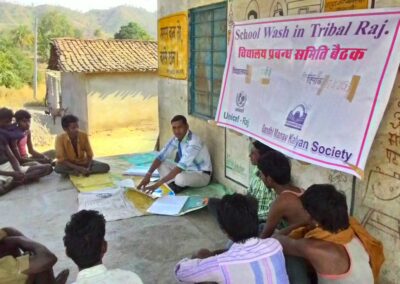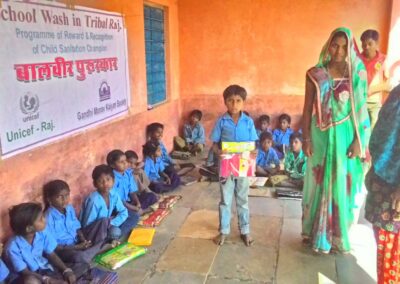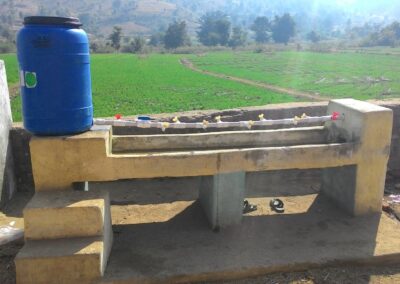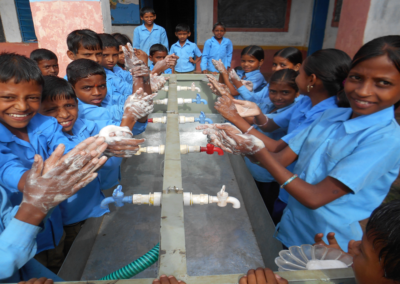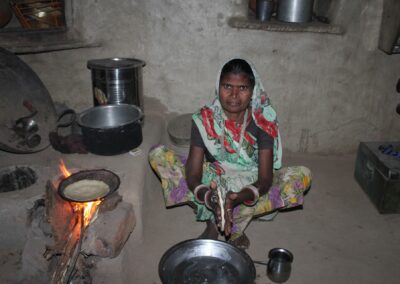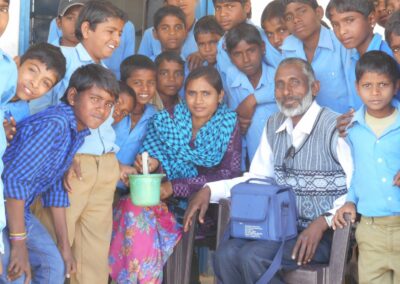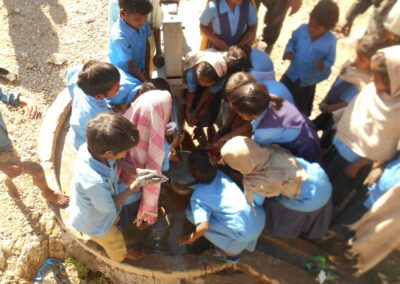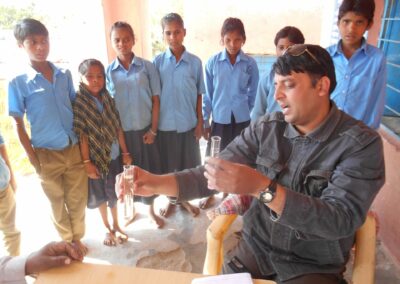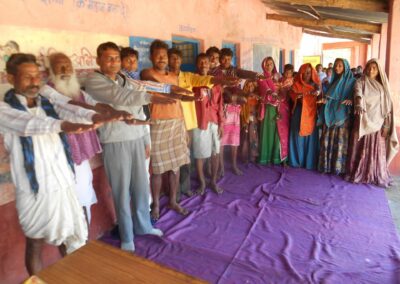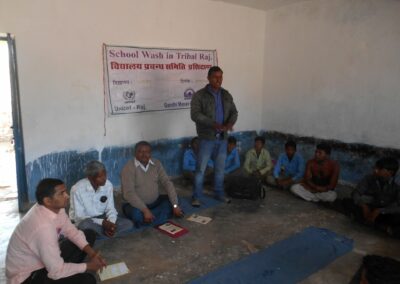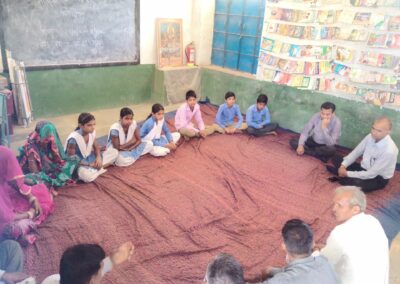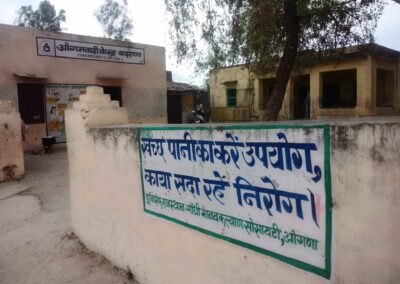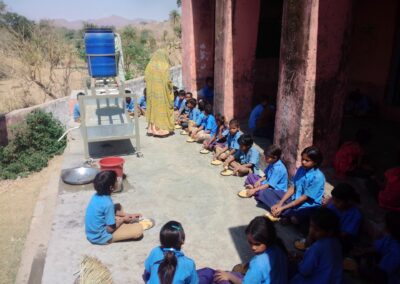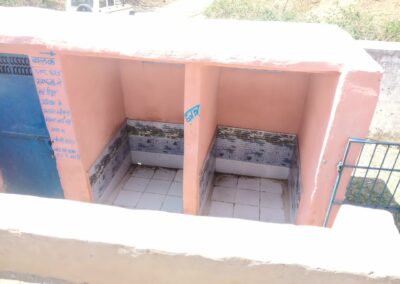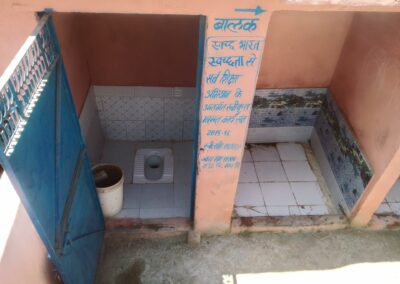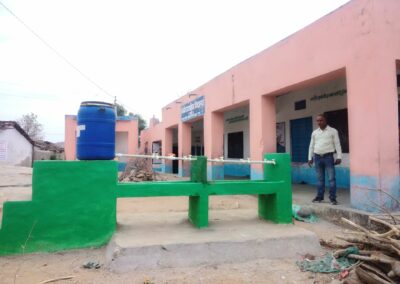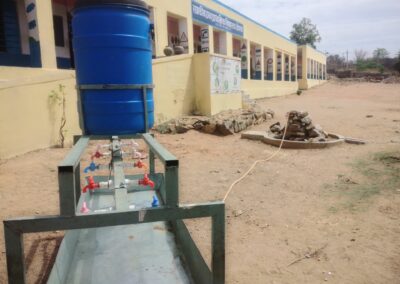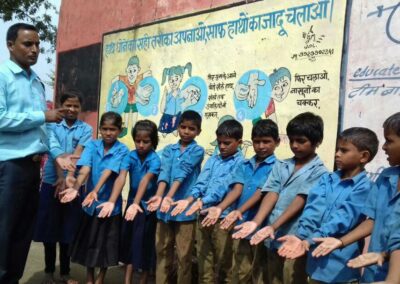People’s Organization
Community Health
SWASHT-R Programme
SWASH is an acronym, standing for “Water, Sanitation and Hygiene,” a group of interrelated public health issues that are of particular interest to international development programs. Access to WASH is a key public health issue.
Access to safe water, adequate sanitation, and proper hygiene education can reduce illness and death, and also impact poverty reduction and socioeconomic development. Poor sanitation contributes to child deaths every year due to diarrhea, and chronic diarrhea can have a negative effect on child development (both physical and cognitive). In addition, lack of WASH facilities can prevent students from attending school, impose a burden on women, and diminish productivity.
GMKS Contribution towards the same:
First of all the understanding has been generated to the community by letting them know that the concept of sanitation was earlier limited to disposal of human excreta by cesspools, open ditches, pit latrines, bucket system etc. Today it connotes a comprehensive concept, which includes liquid and solid waste disposal, food hygiene, and personal, domestic as well as environmental hygiene. Proper sanitation is important not only from the general health point of view but it has a vital role to play in our individual and social life too. Sanitation is one of the basic determinants of quality of life and human development index. Good sanitary practices prevent contamination of water and soil and thereby prevent diseases. The concept of sanitation was, therefore, expanded to include personal hygiene, home sanitation, safe water, garbage disposal, excreta disposal and waste water disposal.
In reference to community and SMC meetings the main agenda was to clarify the needs and the importance of sanitation along with generating demand for improved sanitation through community-led approaches. Major issues of discussion was Promotion and demonstration of safe hygiene practices – i.e., hand washing with soap, food hygiene, menstrual hygiene management, safe stool disposal, and solid waste management. And for the same refrains Mass Hand Wash Units has been installed in the schools.
Meetings and trainings involves ensuring that schools and health facilities enable the practice of safe hygiene behaviors (e.g., hand washing stations, waste disposal facilities) and those health workers and educators are trained on appropriate behavior change communication. Developing educational and communication materials for WASH, and strengthening SMC’s and Child Cabinets, are also instrumental to reinforcing hygiene promotion in schools.
For successful WASH programs, it is also vital to ensure that community members adopt healthy hygiene behaviors that prevent transmission of infectious diseases.
The WASH team also works very closely with governments, community members, community health workers to create networks and learning platforms for exchanging knowledge and lessons learned.
Smokeless Stoves
The unhealthy conditions for the eyes and lungs caused by traditional indoor stoves has long been an area of concern among rural villages. In addition to being hazardous to family health, traditional stoves are becoming less convenient as continuous deforestation causes women to travel further and further in search of fuel. GMKS has invested in introducing the smokeless chulha to tribal households. This improved version of the traditional stove creates a smoke-free environment while also reducing risk of fire and saving fuel. These stoves have an increased thermal efficiency of 20-25% as compared to traditional stoves, making them both a healthy and economic alternative.
Due to continuous deforestation women have to go far off places which cause drudgery in terms of time and energy. Smokeless chulha is an improved version of traditional chulha and has many advantages over it. Its proper use and care relieves from problems like smoke free kitchen which is safe for the eyes as well as lungs. Fire sparkles do not come out of chulha so safe, does not need plastering frequently and saves fuel. These chulhas have thermal efficiency of 20-25% more as compared to the traditional chulhas. This year GMKS has constructed 50 new smokeless chulhas.
